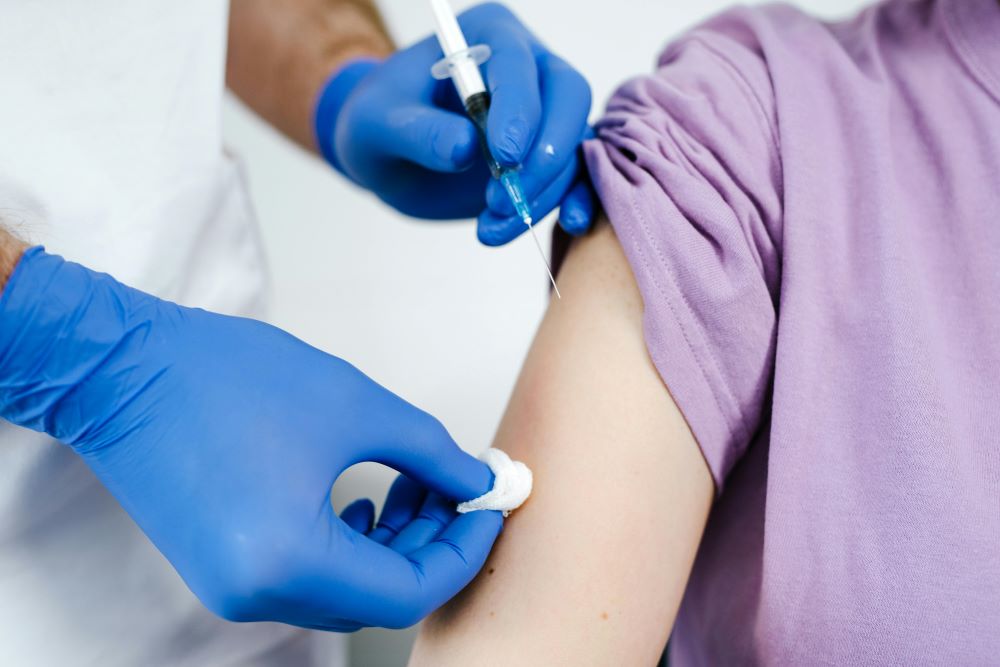Getting multiple vaccines in a short amount of time appears to have no lingering negative health effects.
In the world of medical science, a remarkable case has emerged that challenges the boundaries of conventional vaccination schedules. A 62-year-old man from Germany has captured the attention of the healthcare community by receiving an astonishing 217 COVID-19 vaccines over a span of 29 months. Remarkably, this individual appears to have experienced no significant health effects from this hypervaccination. While this instance alone cannot set a precedent for the general population, it joins a body of evidence suggesting that receiving multiple vaccinations does not inherently cause significant health complications.
This intriguing case, documented in the Lancet Infectious Diseases medical journal, sheds light on the broader implications of hypervaccination. Previous studies have ventured into this less-charted territory, including a notable 2004 research project by military scientists. This study delved into the health outcomes of 155 individuals who had received a median of 154 vaccines or skin tests over approximately 17.3 years, contrasting their experiences with 265 control subjects. Participants, who were multiply immunized persons (MIPs) working in laboratories, contributed self-reported health information alongside blood and urine samples for a comprehensive analysis.
The backdrop for these multiple vaccinations was Fort Detrick in Maryland, a pivotal site for the U.S.’s biological weapons development program from 1943 to 1969. The nature of work involving potentially deadly pathogens necessitated an extensive vaccination program to protect laboratory personnel from infection. This program encompassed 38 different vaccines or skin tests, some of which were not commercially available and were administered as investigational new drugs under informed consent protocols. These vaccines aimed to safeguard against severe diseases like plague, tularemia, anthrax, and Venezuelan equine encephalitis, among others.

The findings from these studies present a nuanced view of the health implications of hypervaccination. While the 2004 study acknowledged minor laboratory abnormalities in some MIPs, there were no significant discrepancies in the prevalence of various diseases, such as arthritis, hypertension, cancer, and diabetes, between the vaccinated group and the controls. Interestingly, the MIPs perceived themselves as less healthy compared to the control group, though this perception did not align with statistical significance. Factors contributing to this sentiment included smoking history, older age, and lower levels of education.
One symptom that stood out was increased fatigue among the MIP group, yet this was not correlated with the number or volume of vaccines received. The comprehensive assessment failed to identify any specific factors that definitively influenced individuals’ self-assessment of their health status. This retrospective study, which looks back on past exposures and health outcomes, contributes valuable insights into the ongoing discourse on vaccination safety and efficacy.
Critics of vaccination might find the conclusions of these studies inconvenient, as they counter the narrative that multiple vaccinations lead to detrimental health effects. The case of the German individual who underwent 217 COVID-19 vaccinations further underscores the potential for a high degree of vaccine safety. However, it is essential to approach these findings with a balanced perspective. The medical community does not advocate for hypervaccination as a means to boost adaptive immunity. Vaccination schedules are carefully designed to maximize immune protection, based on extensive data gathered during vaccine development. Deviating from these schedules without compelling reasons is generally deemed unnecessary and not advisable.
These investigations into the effects of multiple vaccinations contribute to a better understanding of vaccine safety and immune system resilience. While the pursuit of enhanced immunity through hypervaccination is not endorsed, the documented lack of significant health adversities in individuals who have received an unusually high number of vaccines provides reassurance about the safety of approved vaccination protocols. As the dialogue on vaccine safety continues, these findings offer a foundation for informed discussions and decisions regarding vaccination practices and public health strategies.
Sources:
Hypervaccination Does Not Appear To Cause Adverse Health Effects
Lancet retracts 12-year-old article linking autism to MMR vaccines
Adverse Effects of Vaccines: Evidence and Causality
The Top Threat To Americans’ Health Is Not A Virus. It’s Disinformation


Join the conversation!